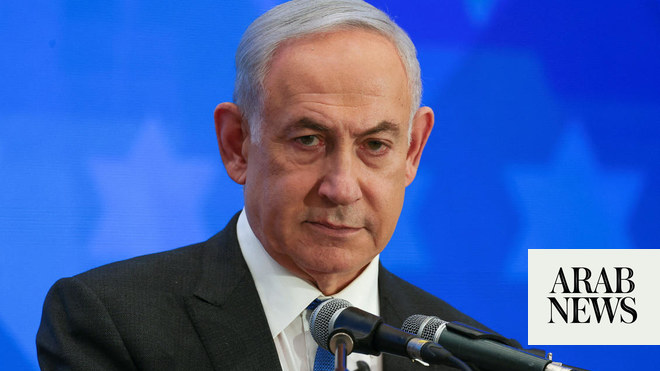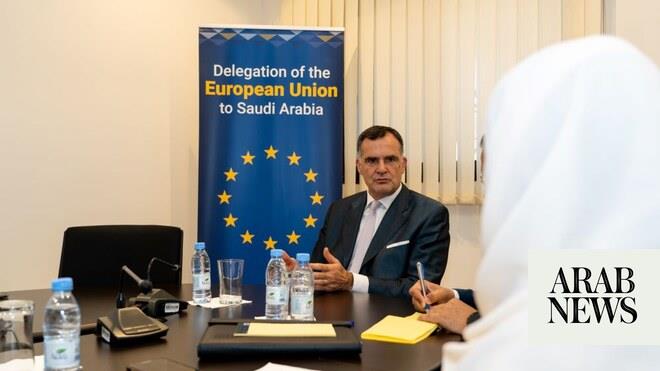
In an exclusive interview, Munir Akram says we must engage with Afghanistan’s new leaders and convince them of the benefits of an open society
He warns that stoking a “climate of fear” will only help to fuel a refugee crisis on a scale the international community is desperate to avoid
NEW YORK: As nations scramble to find ways to deal with the unfolding crisis in Afghanistan, a leading Pakistani diplomat on Monday warned that threats and coercion do not sit well with the Afghan mentality and are not an effective strategy.
To get the country “back to normality,” Munir Akram, Pakistan’s permanent representative to the UN, called for engagement with the Taliban in an effort to show them the “benefits of modernity, technology, education and the values of an open society.”
The situation in Afghanistan is likely to dominate high-level discussions during the 76th session of the UN General Assembly, which began on Sept. 14 and continues until the end of the month.
In an exclusive, wide-ranging interview with Arab News ahead of this week’s annual General Assembly gathering of world leaders, Akram urged the international community to avoid “an attitude of coercion and threats, of attempting to leverage money in order to get a certain conduct.”
Instead he called for a better understanding of the complexities of Afghanistan, its culture, and the beliefs and character of its people.
Akram’s US counterpart, Linda Thomas-Greenfield, was asked recently how US authorities intend to champion the rights of women and girls in Afghanistan now that American troops have withdrawn from the country and leverage has therefore been lost.
“I would argue the opposite,” she said. “We are one of the largest contributors to humanitarian assistance in Afghanistan and that gives us tremendous leverage.”
Understanding the reality of the situation in Afghanistan is increasingly important as the world witnesses the fallout from the crisis affecting not only neighboring countries such as Pakistan and Iran, but also Europe and even the US.
Pakistan has been hosting Afghan refugees for more than 40 years, since the Soviet invasion drove millions to flee across the border. The close relationship between the two countries goes back hundreds of years, during which marriages and migrations created “a natural affinity” between two peoples who share similar ethnic and tribal identities.
“Afghanistan is a multi-ethnic state,” said Akram. “Unless there is peace within all the sections of Afghanistan there will continue to be some form of conflict. And if there is a conflict or a humanitarian crisis, there’s likely to be more outflows of refugees (engulfing) not only Pakistan and Iran as neighboring countries but also Europe and maybe even the US.
“It is not very clear whether they will be welcomed. It has been said that (other countries) are willing to take many of those Afghan people who worked with US and NATO in the past 20 years, but what about the rest of the Afghan people? People who really need assistance, really are destitute, really are hungry and poor? We must not forget them.”
Akram’s road map for responding to the challenges in Afghanistan includes an immediate relief effort to address the severe humanitarian crisis in the country. Levels of poverty and hunger have risen since the Taliban took over last month, and foreign aid has dwindled, raising fears of a mass exodus. According to the UN, 18 million Afghans, half of the population, are food insecure.
During a UN conference last week, organized to galvanize an international aid effort, donors pledged more than $1.1 billion to Afghanistan.
Akram described this as “a positive” and added: “I hope that those pledges will be fulfilled as quickly as possible.”
Any lasting peace in Afghanistan will also require the formation of an inclusive government in Kabul. However the post-takeover authority excludes women and minorities, fueling fears of a return to the hard-line Taliban attitudes and practices of the past.
Last Friday, the UN Security Council unanimously approved a resolution calling for Taliban leaders to establish an inclusive government that guarantees the “full, equal and meaningful participation of women” and upholds human rights.
Akram believes that the current interim government is only “a first step,” talks are continuing among Afghans, and the Taliban’s desire to establish an inclusive government “is still there.” He also cautioned against failing to take into account what he called “ground realities.”
“The Taliban have fought a war for 20 years and they have been successful in that war, therefore they will wish to have adequate representation,” he said. “But this should also include other groups so that there is peace throughout Afghanistan.”
Deborah Lyons, UN Secretary-General Antonio Guterres’s special representative for Afghanistan, has warned of the deteriorating humanitarian situation. She called for a “modus vivendi,” or compromise agreement, to prevent a total breakdown by allowing money to continue to flow into the country.
Some members of the new government are on the Security Council’s sanctions list, and therefore subject to economic, trading and diplomatic restrictions.
Akram said the Taliban expect the Security Council to begin the process of lifting these sanctions. This was part of the agreement the group reached with Washington in February, in return for which it pledged not to attack US or NATO forces during their withdrawal from Afghanistan.
In the weeks since the Taliban took over, there have been increasing reports from Kabul of grave human rights abuses. According to Human Rights Watch, the new authorities have raided the homes of journalists and activists, apparently searching for individuals who criticized them. In addition, restrictions have been imposed on the education of girls and the right of women to work.
Akram acknowledged these concerns but warned of the danger of what he called the “fake news” that is circulating. In particular he highlighted reports of a crackdown on a demonstration by Afghan women, saying that the very fact such a protest was allowed to go ahead reveals a change of behavior by the Taliban.
The envoy said he understands why some Afghans fear for their personal safety, and that Pakistani authorities have arranged for 12,000 Afghans and foreign nationals who felt threatened to leave country.
But he denounced what he described as attempts to create “a climate of fear” that might push Afghans to flee their country at a time when it needs them to “stay and build.”
“Creating a climate of fear will (lead to) the very results that we fear, which is an outflow of refugees,” he added.
Another concern among many people is that Afghanistan might once again become a haven for terrorists. Akram responded to this fear by considering the lessons he believes have been learned in the past 20 years.
“What we needed to do against Al-Qaeda was to use a pick to find them and extract them from where they were,” he said. “Instead, we used a hammer. We went in and invaded Afghanistan and Iraq, and killed hundreds of thousands of people.
“When you bomb people and kill their children, you recruit people into terrorism. And that is what has happened.”
As a result, he added, the threat of terrorism has spread and become much more complex.
“It is no longer in Afghanistan alone; it is in Yemen, Syria, the Western Sahara and all over the world,” said Akram.
“At the same time, because of the equation of terrorists with Muslims, Islamophobia rose and today you have terrorist organizations that target Muslims. So we have to learn from those mistakes.”
Taking all of this into account, Akram urged the international community to adopt a comprehensive, coordinated strategy and work with the Taliban in an effort to address all forms of terrorism.
“If we adopt competitive strategies — ‘I can deal only with my terrorist threat but not yours’ — I think we will lose,” he added.











